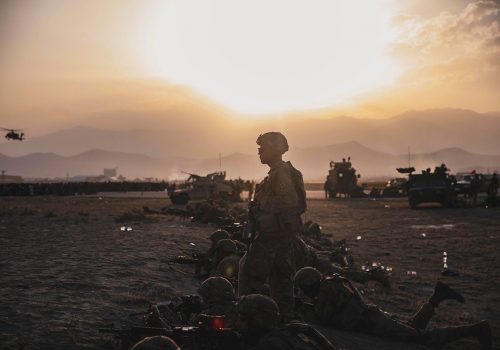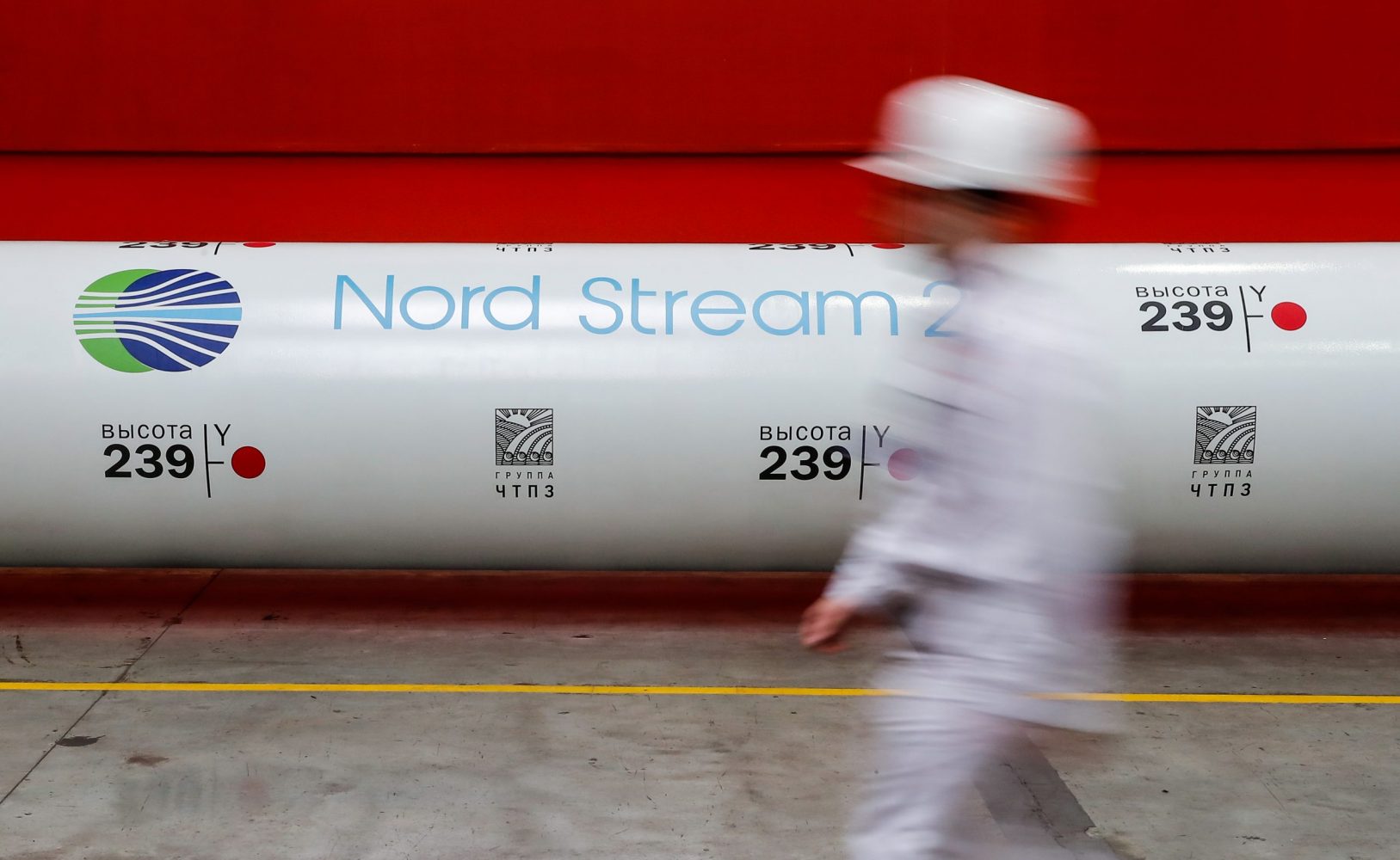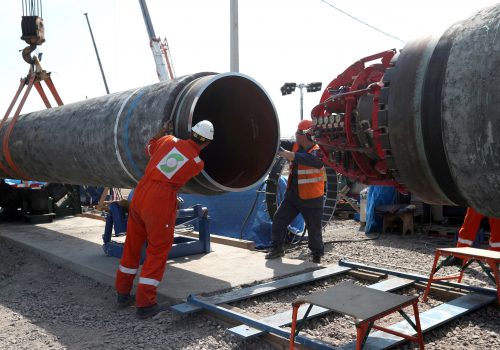FAST THINKING: Ukraine’s president finally gets a White House visit
JUST IN
A friend in need is a friend indeed. Ukrainian President Volodymyr Zelenskyy made his long-awaited first visit to the White House on Wednesday to meet with US President Joe Biden, and both leaders can say they walked away with victories. Zelenskyy—whose country is in its eighth year of war following Russia’s invasion of eastern Ukraine—received a renewed US commitment to help boost Ukrainian security. For Biden, the meeting was a chance to prove the United States is a good partner amid sharp criticism of the way the US withdrew from Afghanistan. What message does the get-together send to Moscow? What further hurdles must these allies overcome? Our expert breakdown is below.
TODAY’S EXPERT REACTION COURTESY OF
- John E. Herbst (@JohnEdHerbst): Director of the Atlantic Council’s Eurasia Center and former US ambassador to Ukraine
- Melinda Haring (@melindaharing): Deputy director of the Eurasia Center
- Oleh Shamshur (@Shamshur_O): Nonresident senior fellow at the Eurasia Center and former Ukrainian ambassador to the United States.
What Zelenskyy gets
- Much of the Ukrainian political establishment was rattled by Biden’s decision to lift US opposition to the controversial Nord Stream 2 pipeline from Russia to Germany—a move seen in Kyiv and by many in Congress as paving the way for Moscow’s weaponization of energy. And the US pullout from Afghanistan, combined with Russian upcoming military exercises with Belarus, may have Zelenskyy worried that Russian President Vladimir Putin is preparing to escalate his war in Ukraine.
- But the visit’s parting gifts could help allay those fears. Ukraine gets an extra $60 million in US security assistance—bringing the total this year to more than $400 million—plus the revival of the Strategic Partnership Commission, a mechanism for US and Ukrainian officials to coordinate on security, trade, and energy challenges that hasn’t met in three years. “The results of this visit are a clear signal to Moscow not to escalate in Ukraine. This is exactly what Zelenskyy wanted,” John says.
- Melinda points out that while Ukraine needs the boost in support, it’s not enough: “$60 million is a drop in the bucket,” she says.
- And while the leaders’ joint statement mentioned that the US will send additional Javelin missiles, Oleh also wants to see an expansion of the types of weapons provided to Ukraine and “more attention paid to the development of Ukrainian air force, air defense, and naval capabilities.”
- Still, Melinda adds, there’s also a benefit to Kyiv that you can’t put a price on: “For Zelenskyy, the fact that the White House is paying attention to something other than Afghanistan and China is a real win.”
Subscribe to Fast Thinking email alerts
Sign up to receive rapid insight in your inbox from Atlantic Council experts on global events as they unfold.

What Biden gets
- An Oval Office sit-down with the Ukrainian president might not generate wall-to-wall cable news coverage to drown out the latest from Kabul. But it does represent a “foreign-policy win,” in John’s eyes, as Russia and China seize on the Afghanistan withdrawal “to sow doubts about the reliability of the US as a partner and ally.”
- For both leaders, Melinda says, it’s also “a chance to clear the air and move beyond the taint and tarnish of the Trump era,” during which the Kyiv-Washington partnership descended into toxic political intrigue.
Where they fell short
- Despite these wins, certain sticking points in the relationship will remain, including Nord Stream 2 and widespread corruption in Ukraine, which is still struggling to clean up its judicial system.
- As a result, expect both leaders to continue pushing one another, Melinda advises: Zelenskyy for a clear US guarantee of NATO membership for his country, and Biden for meaningful domestic reforms that would help Kyiv finally shake off the shackles of endemic graft. “There’s a reason why Ukraine’s [foreign direct investment] is zero,” she says, “and blaming Russian aggression only goes so far.”
- Ultimately, Oleh argues, the meeting “produced no breakthroughs.” He points out that “most of the agreements signed refurbish, enhance, or resuscitate previous arrangements.” They’ll require substantial follow-up and work to implement the measures. If that doesn’t happen, he warns, they risk becoming “those wishful documents that migrate from one summit to the other.”
Further reading
Mon, Aug 30, 2021
Experts react: The US withdrawal from Afghanistan is complete. What’s next?
Experts react By
What’s next for Afghanistan? How will evacuations proceed without the US military controlling Kabul airport? What’s next for the counterterrorism mission? How will other regional and global powers shape the country the United States leaves behind?
Fri, Aug 27, 2021
Ukrainian leaders to Biden: Standing with the world’s democracies means changing course on Nord Stream 2
UkraineAlert By
In a letter to President Joe Biden, more than 50 Ukrainian policymakers, leaders, experts, and civil society activists call for the United States to change course on support for the Nord Stream 2 pipeline.
Wed, Jul 21, 2021
FAST THINKING: Nord Stream 2 gets the green light
Fast Thinking By
How will the United States and Germany balance business needs with security? And what price will Kyiv be forced to pay? We drilled down with our experts for answers.
Image: Ukraine's President Volodymyr Zelenskiy speaks during a meeting with U.S. President Joe Biden in the Oval Office at the White House in Washington, U.S., September 1, 2021. REUTERS/Jonathan Ernst


